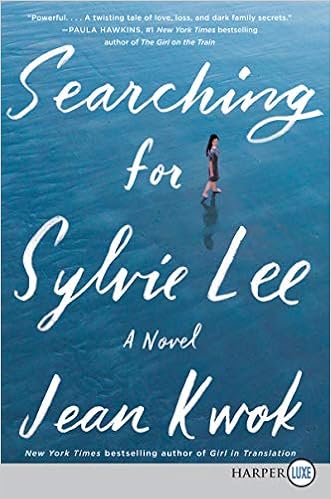Being interested in things Dutch, I chose this book because it is partially set in The Netherlands; unfortunately, though the novel begins well, it soon degenerates into a soap opera.
Sylvie, 33, is the successful daughter of a first generation Chinese
immigrant family living in New York. She
spent the first 10 years of her life in The Netherlands living with her
maternal grandmother and the Tan family which consists of her mother’s cousin
Helena, Helena’s husband Willem, and their son Lukas. Amy, 26, is Sylvie’s sister, but she is
drifting through life, not really certain what she wants to do; she still lives
with her parents Ma and Pa.
Sylvie flies to The Netherlands when she learns her grandmother is
receiving palliative care. She spends
about a month there and then disappears.
Amy decides to fly over to see if she can discover what happened to her
sister. Even before she leaves, Amy
comes to realize that Sylvie’s life is not as perfect as she led others to
believe. In The Netherlands, she also
learns that the ten years Sylvie spent there were not as happy as Amy
thought.
Chapters alternate between Amy’s perspective as she searches for her
sister and Sylvie’s point of view a month earlier during her stay near
Amsterdam. Occasionally, Ma’s viewpoint
is given, interspersed with transcripts of phone calls/emails/texts and
newspaper clippings.
At the very beginning, there is a quote from Willa Cather: “’The heart of another is a dark forest, always,
no matter how close it has been to one’s own.”
Later there is an observation that, “In love and life, we never know
when we are telling ourselves stories.
We are the ultimate unreliable narrators.” These statements prove to be true when it comes
to the two sisters: despite their
closeness, they don’t really know each other.
Each suffers from low self-esteem and thinks the other sibling is
extraordinary. For instance, Amy
comments, “Often there’s a dichotomy between the beautiful sister and the smart
one, but in our family, both of those qualities belong to my sister. And me, I am only a shadow, an afterthought,
a faltering echo.” Whereas Amy describes
Sylvie as “’So talented, so amazing’”, Sylvie describes Amy as “’the one with
the real talent in the family’” whose “beauty glowed from within, whereas I was
all about the surface.” Amy has
convinced herself that Sylvie lived “a glamorous life in Europe” even though
Sylvie “doesn’t often speak about her life in the Netherlands.” Obviously, the title refers to more than just
a physical search.
There are some plot elements that are just distractions. The cache of family jewels and its theft just
seem outlandish. The trip to Venice with
Sylvie’s flirting with both Lukas and Filip is like a soap opera and does
little to gain sympathy for Sylvie. It
also makes little sense to have Sylvie taking cello lessons and a trip
to Italy while her grandmother is dying.
And she buys her dying grandmother a gift of “a white-gold key chain
with a dangling Sommerso key”? Amy, on
the other hand, just seems clueless: she
doesn’t realize that Filip shouldn’t know her name; she doesn’t connect Filip,
the cellist, with Sylvie’s cello teacher; she doesn’t understand that a diver
would be looking for a corpse. Instead,
she focuses on how much a search will cost her even though she is told from the
onset that the search organization is a non-profit organization which relies on
volunteers.
There are other unrealistic elements.
Whenever Filip performs, he plays one of Amy’s favourites: “the Bach Cello Suites are some of my
favorite pieces” and “Dvořák’s Rusalka,
a favorite of mine”? A body found in a
canal would not automatically have an autopsy performed? A newspaper would speculate about the
identity of a body before identity was confirmed?
There are also some style issues that bothered me. How many times must we be told that the Dutch
are tall? But why would they be
described as long: “He had always been a
long boy”? Then there’s the melodramatic
writing: “The key fell from my stupefied
fingers, hit the wooden floor, and shattered.”
The book sheds light on the discrimination faced by non-white
immigrants. The Lee family in the U.S.
and the Tan family in The Netherlands both encounter prejudice. Amy is accustomed to “aggression back home”
but an acquaintance tells her, “’We have our problems here in the Netherlands
too. There is stupidity everywhere and
we are not used to having many foreigners here.’”
The themes of people hiding their real selves from others, even loved
ones, and every secret having a price are not developed in a unique way in this
novel. There is also supposed to be a
mystery, but that mystery is easily solvable.
And unnecessary and unrealistic elements detract from the book as
well. A search for a good book should
dismiss Searching for Sylvie Lee.

No comments:
Post a Comment